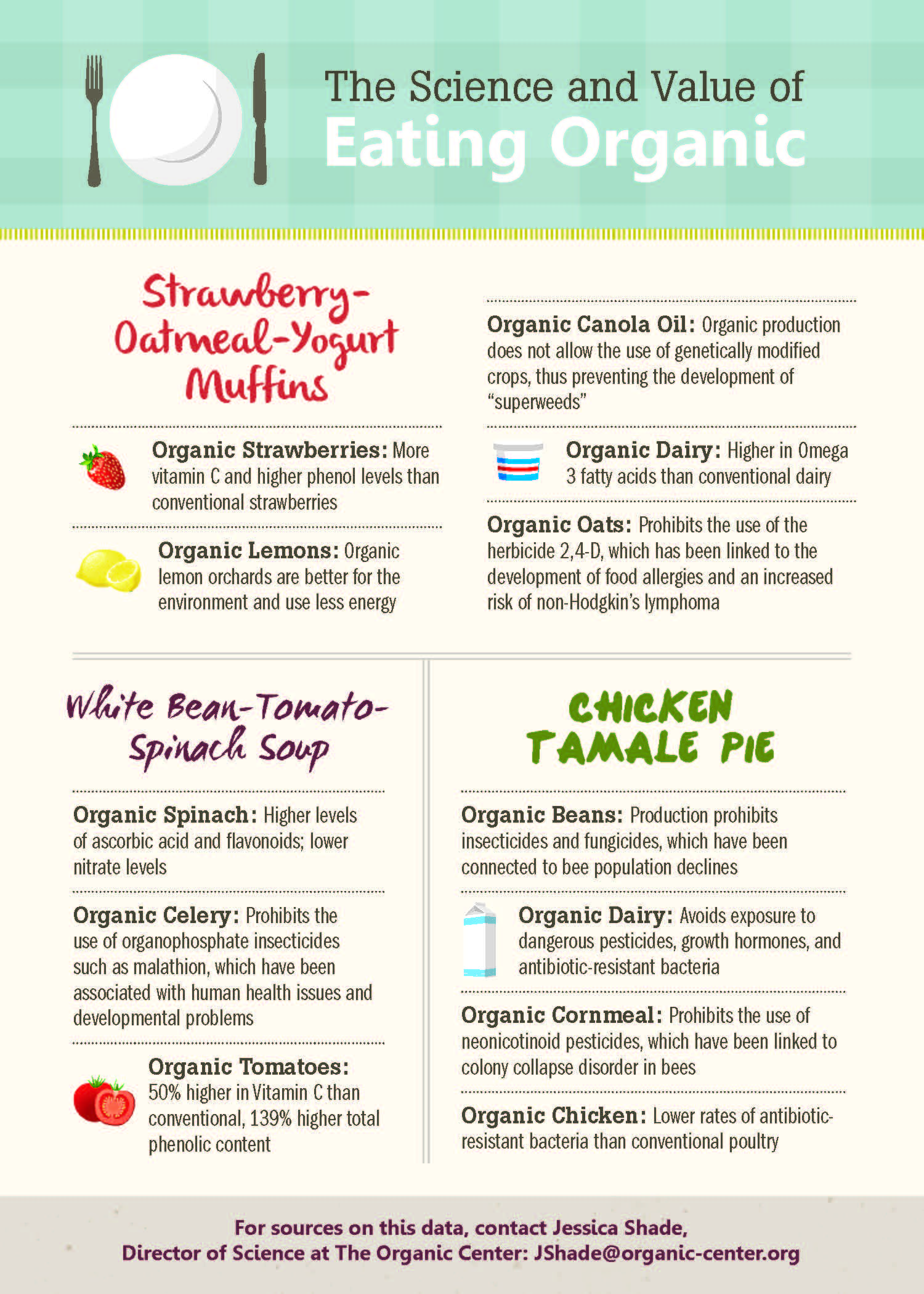Organic food sales are increasing by the double digits annually, and more than 80 percent of parents reported buying organic food for their families last year. While there’s great momentum for organic sales, the overwhelming reason people give for not purchasing it is because it’s too expensive. However, there are many ways families can enjoy all organic meals every day affordably. Check out OTA's resources on the science and value behind organic!
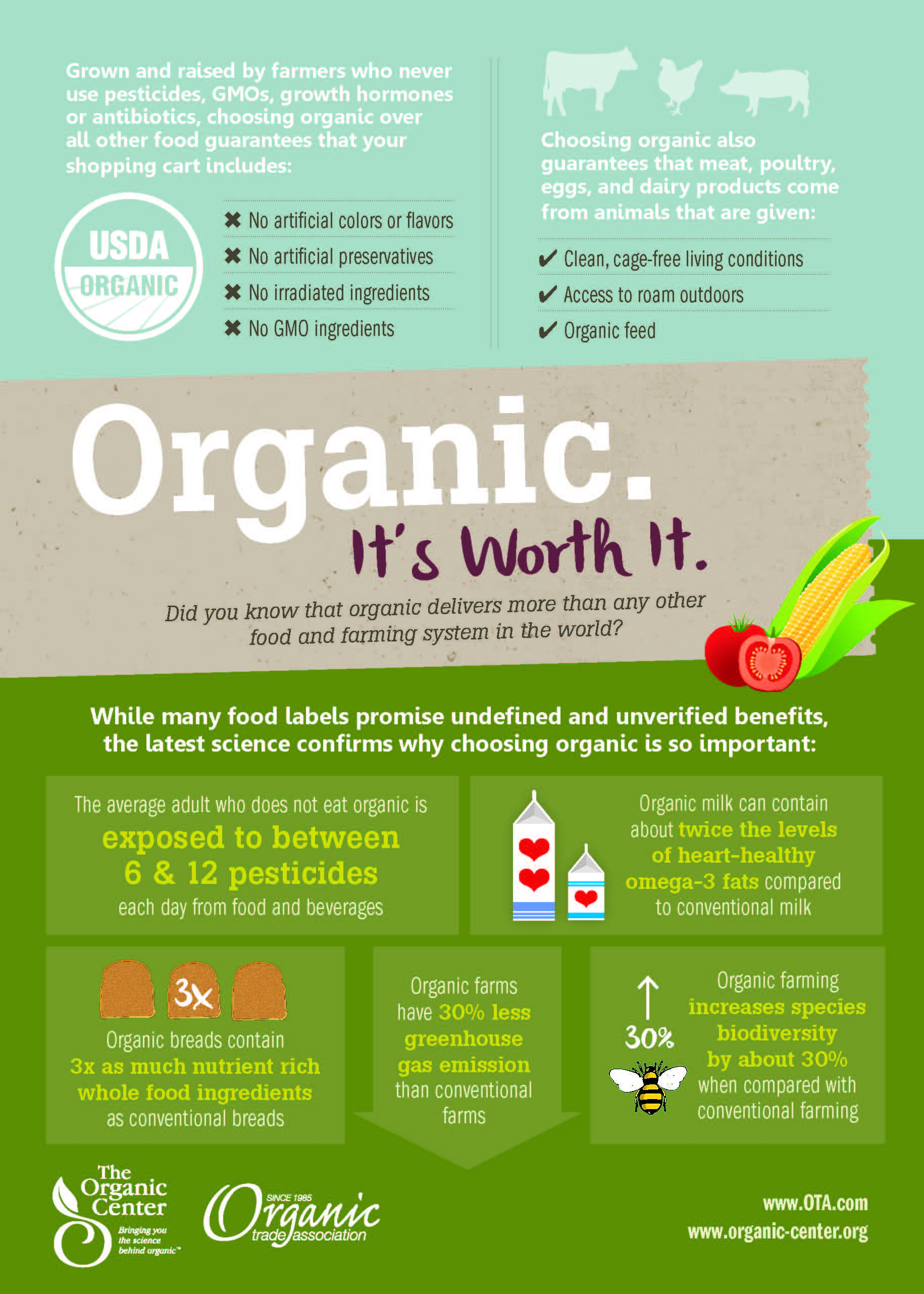
Menu Planner
Families of four can enjoy all organic on budgets of $25/day or less, and still reap organic’s full nutritional and sustainable benefits. To show you how, OTA offers a menu ideas for all organic breakfast, lunch and dinner, while The Organic Center highlights their scientific benefits.
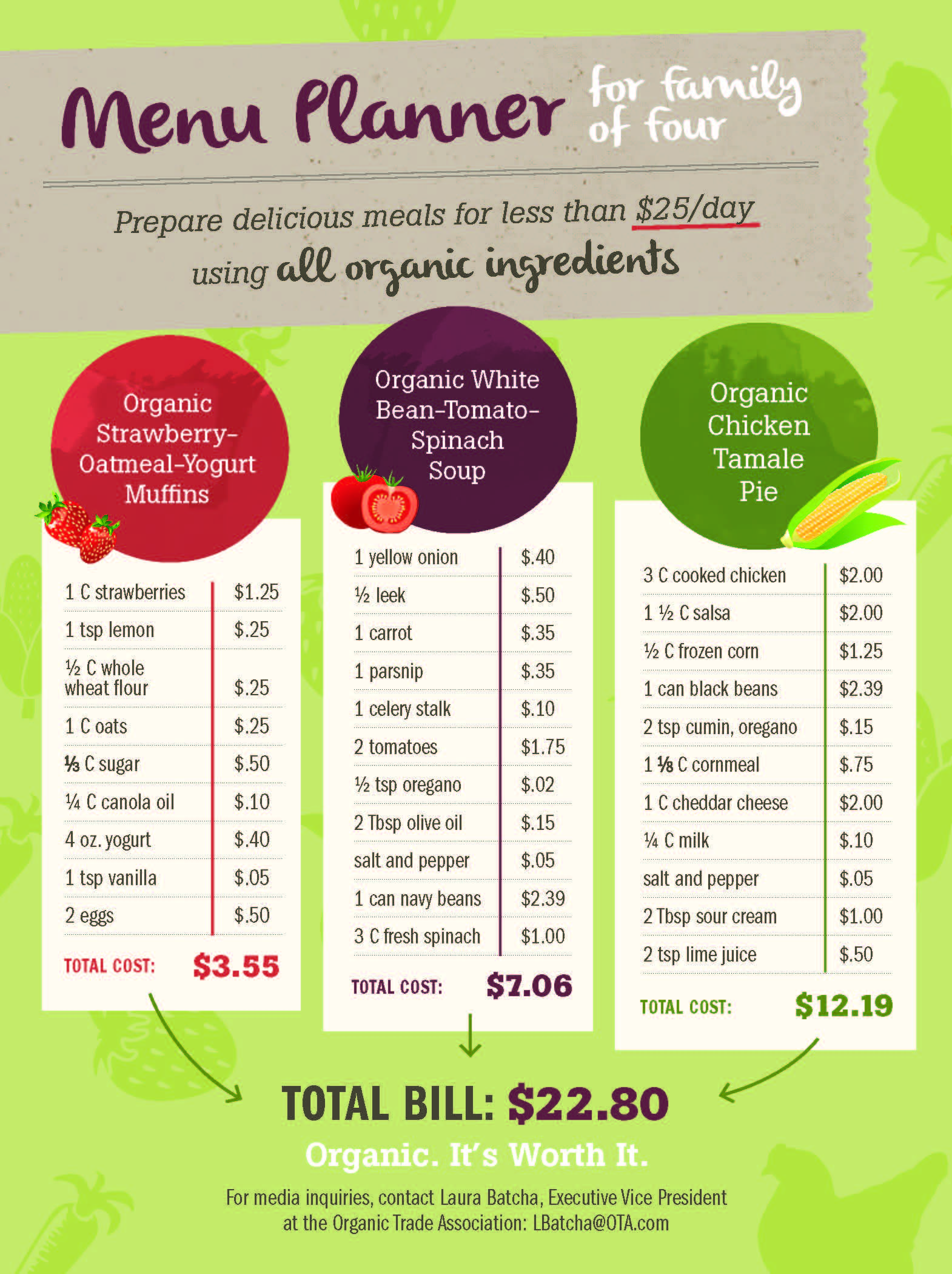 |
Get the Recipes
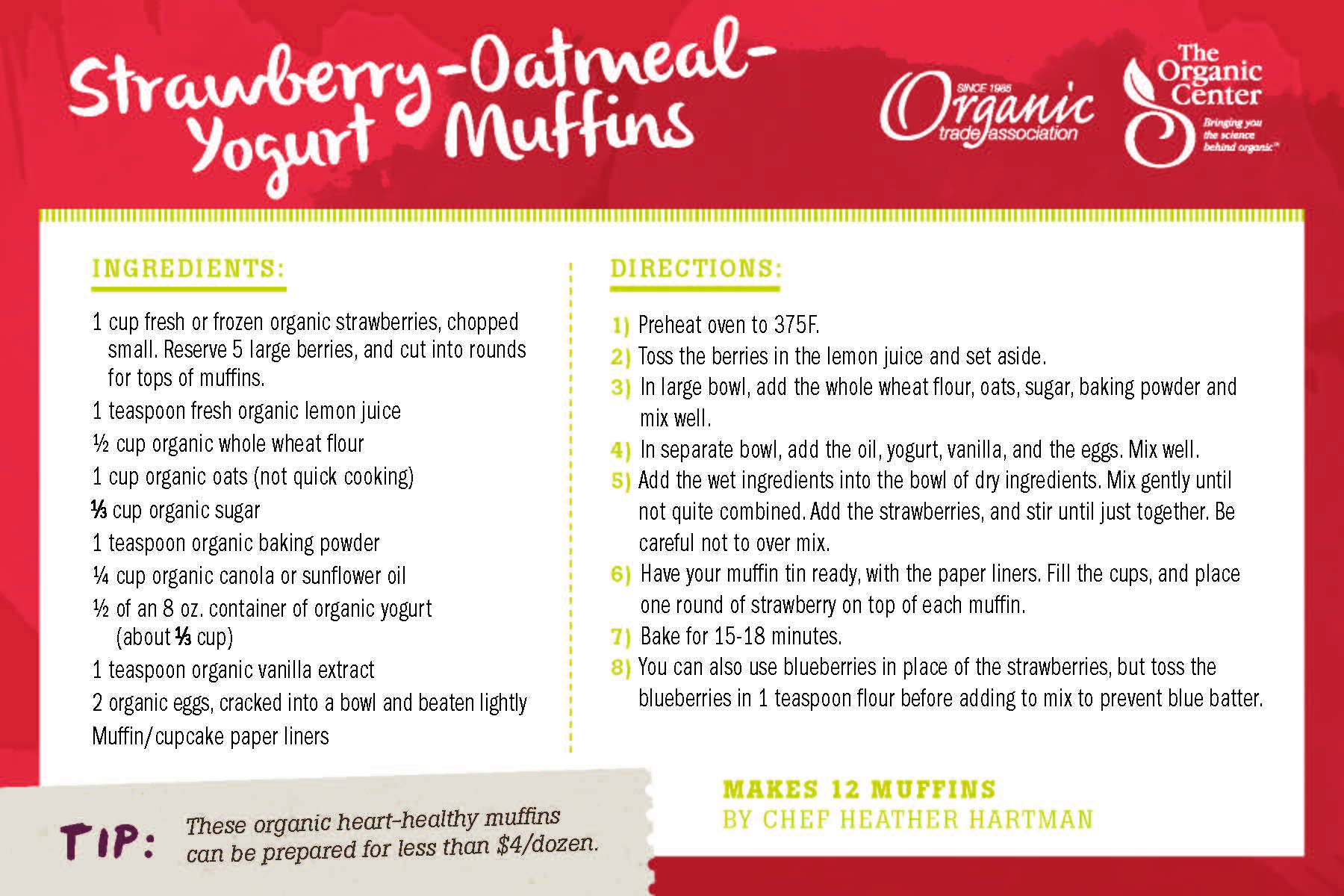
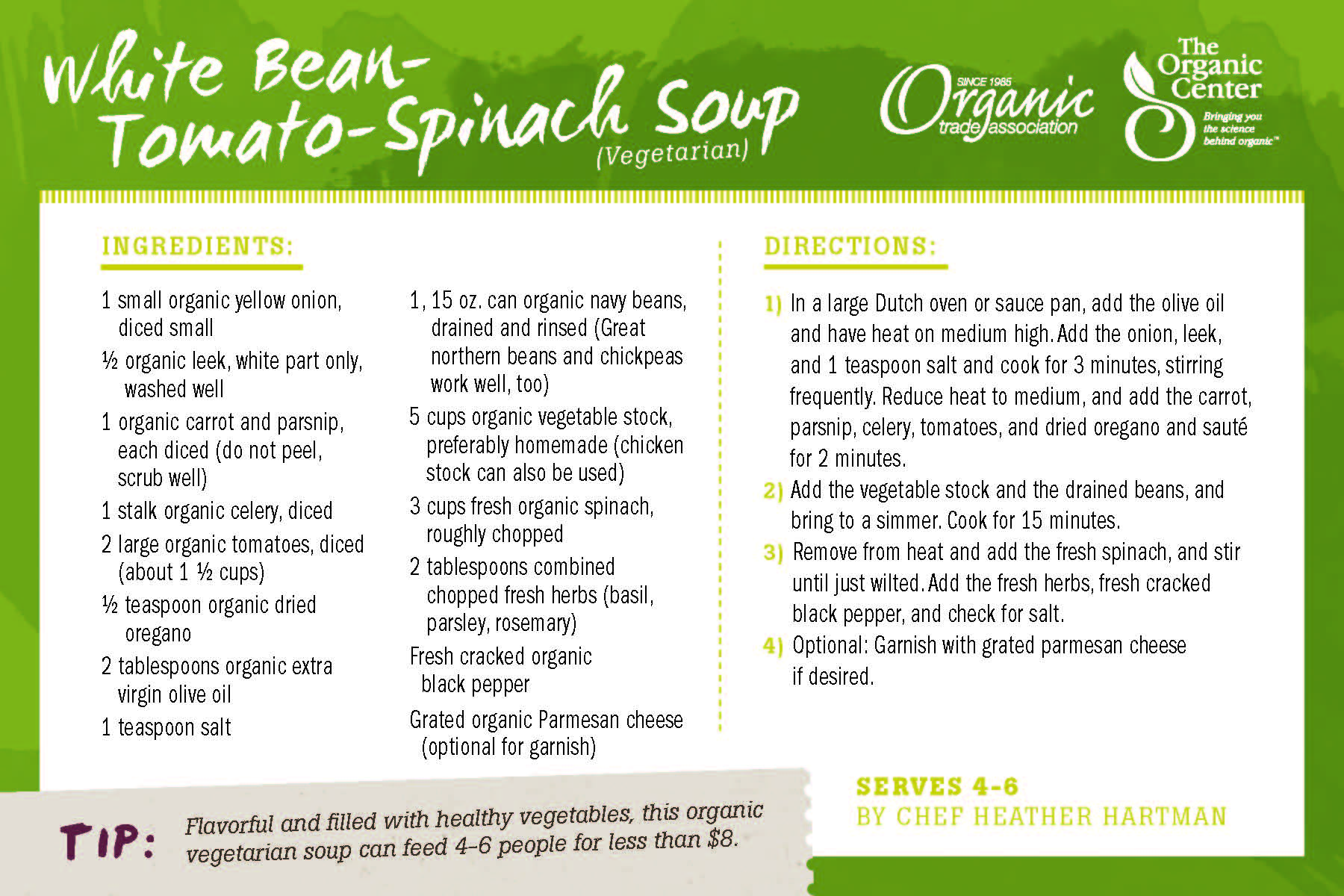
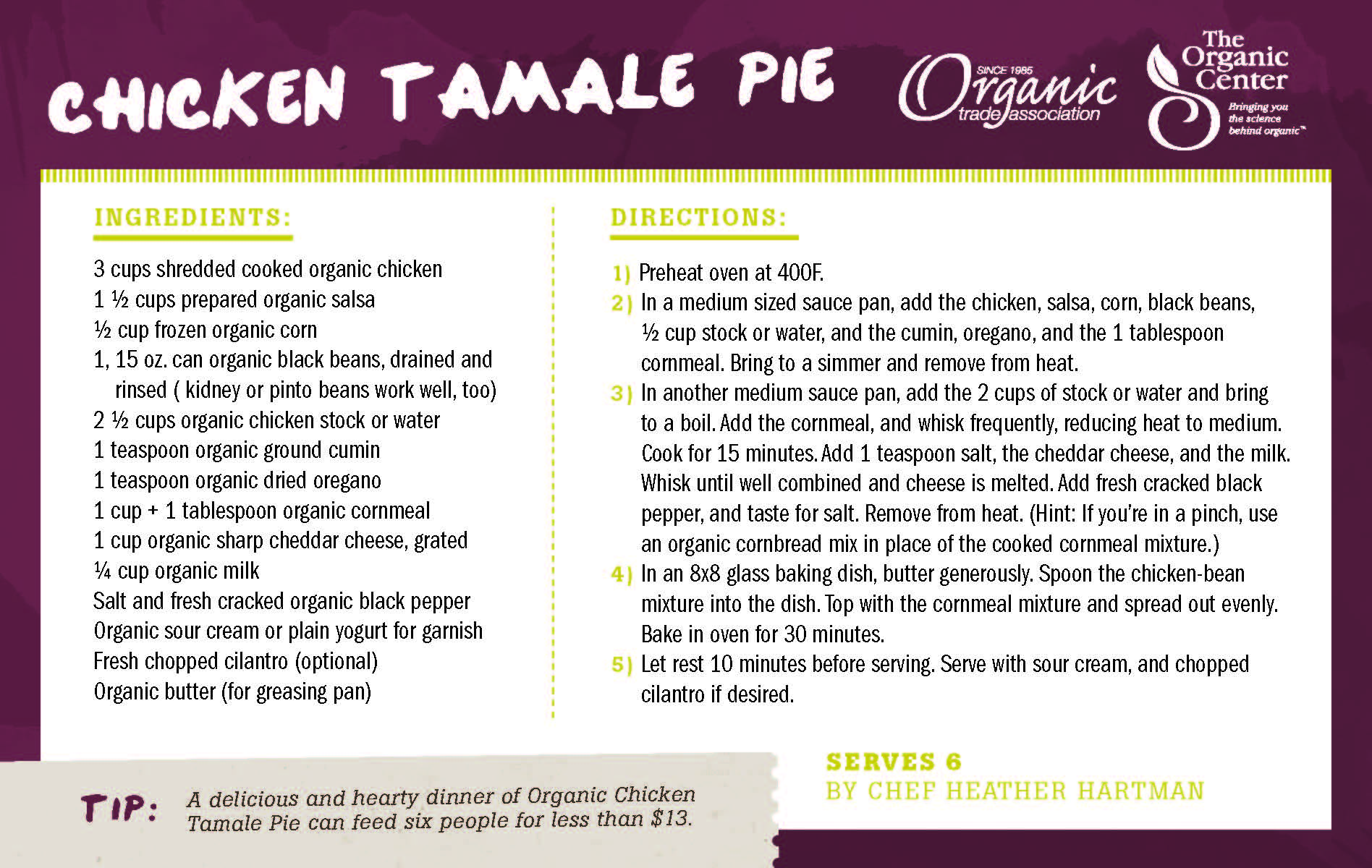
14 ways to enjoy more of your favorite organic products for less.
1- Buy in bulk.
Many products are sold at a discounted rate when they are purchased in bulk. Buy more organic and save!
2- Shop in season, then store for the off season.
Many products are less expensive when they are purchased in season. Whether you are buying a bathing suit or a bag of bing cherries, it’s worth it to see what’s in store in terms of deals on seasonal products. Organic produce is more affordable while in season, and holds its full nutritional benefits when frozen or stored for enjoying when not in season.
3- Investigate private label products.
More often thought of as "store brand "or" generic brand" products, private label products are a great place to start when you are looking to incorporate more organic into your life. Offering staple organic products at prices competitive with non-organic, brand-name products, they make buying organic an easy and affordable choice. They have also gone through the same rigorous USDA organic certification procedures as name brand organic products.
4- Plan for the month, not just the week.
By planning meals as far out as possible, you can curb your costs by finding multiple ways to incorporate organic spices, oils, nuts, dried beans, flour/grain, frozen produce and other ingredients many times over the month.
5- Cash in on coupons.
Coupons are a great way to save on many of your favorite organic products. Many manufacturers make printable coupons available on their websites. You can also ask your organic retailer about other products for which coupons are available.
6- Explore farm stands and farmers' markets.
Farm stands and farmers' markets are cropping up all over the country, offering competitive prices on a wide range of organic products.
7- Check out customer loyalty programs.
More and more retailers offer rewards programs for customer loyalty. These programs often allow you to earn points based on the purchases you make, which can then be used toward product discounts, free products, or other types of prizes.
8- Become a member of a CSA.
Community supported agriculture, or CSA is emerging as a convenient and cost-effective way to buy organic products. A single CSA share can provide you with affordable access to a wide range of organic products; split a share with a friend to make your investment even more budget-friendly!
9- Make a shopping list.
We're all tempted to make impulse buys when we're at the grocery store, but doing so can easily bust the budget. Instead, write up a list of the items you need and do your best to stick to it. You'll come home with the things you need and fewer (if any) of the things you don't.
10- Cook at home.
Eating out is a great treat, but doing it all the time can add up. Cooking at home can help to keep your budget in check and encourage you to explore the range of possibilities that exist using organic ingredients.
11- Join a buying club.
Many buyer clubs ship organic food wholesale to doorsteps – and many organic food producers and retailers’ websites and social outlets feature frequent coupons, offers and other incentives. Also, joining organic farm CSAs not only saves you money but directly supports your local economy.
12- Choose organic versions of the products you use most.
To get the most benefit for your organic buck, try buying organic versions of the products you use most. Whether that is milk, produce, or personal care products, buying organic will not only help reduce your exposure to harmful synthetic pesticides and fertilizers but also support a system of agricultural management that is great for the planet.
13- Shop at two destinations.
With organic food available at most grocers, consumers now have the opportunity to comparison shop prices at multiple locations to keep their prices down. One strategy could be purchasing fresh produce at organic-focused markets, and packaged, canned and shelf-stable items at larger discount retailers.
14- Go by/buy the books.
For extra inspiration, discover helpful cookbooks with recipes and ideas for organic on a budget, such as the newly-released The Essential Good Food Guide by Margaret Wittenberg and Wildly Affordable Organic by Linda Watson.

